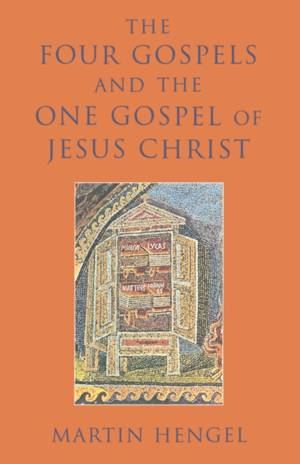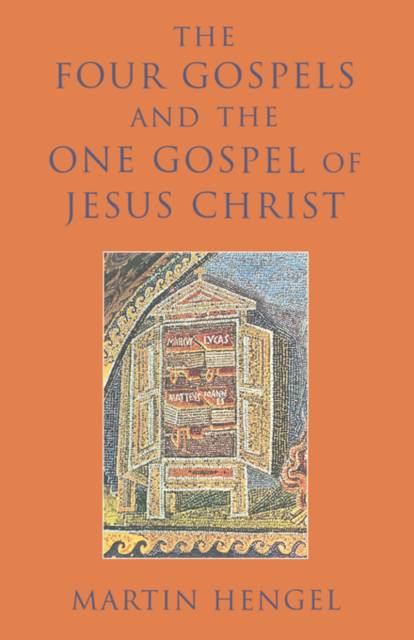
Je cadeautjes zeker op tijd in huis hebben voor de feestdagen? Kom langs in onze winkels en vind het perfecte geschenk!
- Afhalen na 1 uur in een winkel met voorraad
- Gratis thuislevering in België vanaf € 30
- Ruim aanbod met 7 miljoen producten
Je cadeautjes zeker op tijd in huis hebben voor de feestdagen? Kom langs in onze winkels en vind het perfecte geschenk!
- Afhalen na 1 uur in een winkel met voorraad
- Gratis thuislevering in België vanaf € 30
- Ruim aanbod met 7 miljoen producten
Zoeken
Four Gospels and the One Gospel of Jesus Christ
An Investigation of the Collection and Origin of the Canonical Gospels
Martin Hengel
Paperback | Engels
€ 161,45
+ 322 punten
Omschrijving
Why did the church, in forming its canon of scripture, choose to include four different and sometimes contradictory accounts of the life of Jesus, when others, like Tatian and Marcion, opted for a harmony, for one account? Professor Hengel examines the external historical evidence for the creation of the Gospels by those documenting the early church, like Papias and Ireneus. He also analyzes the origin of the uniform title "Gospel according to" and the process of dissemination of the gospel. He concludes that whether for the evangelists or for Paul, the gospel is both narrative and proclamation. Despite the problems caused by the different forms in which the gospel has come down to us, this very multiplicity remains a source of strength for the church. Martin Hengel is Emeritus Professor of New Testament and Early Judaism at the University of Tubingen.
Specificaties
Betrokkenen
- Auteur(s):
- Uitgeverij:
Inhoud
- Aantal bladzijden:
- 368
- Taal:
- Engels
Eigenschappen
- Productcode (EAN):
- 9781563383007
- Verschijningsdatum:
- 1/07/2000
- Uitvoering:
- Paperback
- Formaat:
- Trade paperback (VS)
- Afmetingen:
- 134 mm x 221 mm
- Gewicht:
- 494 g

Alleen bij Standaard Boekhandel
+ 322 punten op je klantenkaart van Standaard Boekhandel
Beoordelingen
We publiceren alleen reviews die voldoen aan de voorwaarden voor reviews. Bekijk onze voorwaarden voor reviews.









